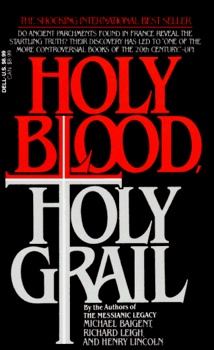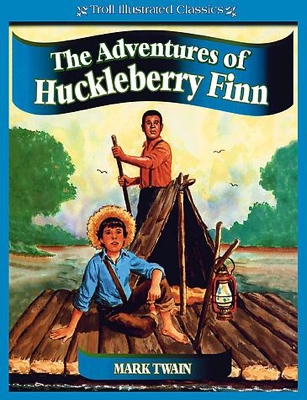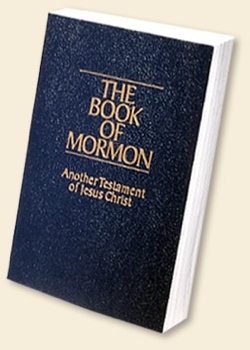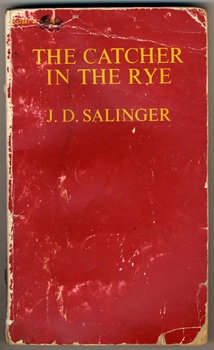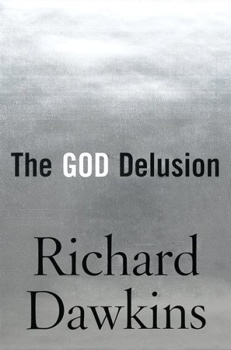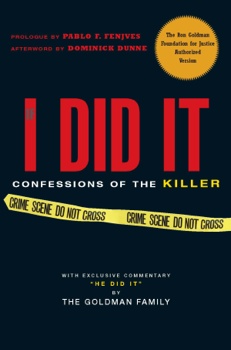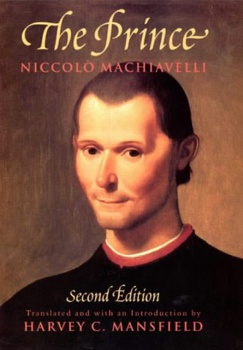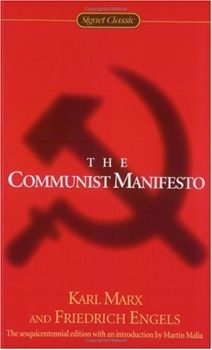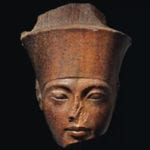 Politics
Politics  Politics
Politics  Weird Stuff
Weird Stuff 10 Eggs-traordinarily Odd Eggs
 History
History 10 Desperate Last Stands That Ended in Victory
 Animals
Animals Ten Times It Rained Animals (Yes, Animals)
 Mysteries
Mysteries 10 Devastating Missing Child Cases That Remain Unsolved
 Creepy
Creepy 10 Scary Tales from the Middle Ages That’ll Keep You up at Night
 Humans
Humans 10 One-of-a-kind People the World Said Goodbye to in July 2024
 Movies and TV
Movies and TV 10 Holiday Movies Released at Odd Times of the Year
 Politics
Politics 10 Countries Where Religion and Politics Are Inseparable
 Weird Stuff
Weird Stuff 10 Freaky Times When Famous Body Parts Were Stolen
 Politics
Politics The 10 Most Bizarre Presidential Elections in Human History
 Weird Stuff
Weird Stuff 10 Eggs-traordinarily Odd Eggs
 History
History 10 Desperate Last Stands That Ended in Victory
Who's Behind Listverse?

Jamie Frater
Head Editor
Jamie founded Listverse due to an insatiable desire to share fascinating, obscure, and bizarre facts. He has been a guest speaker on numerous national radio and television stations and is a five time published author.
More About Us Animals
Animals Ten Times It Rained Animals (Yes, Animals)
 Mysteries
Mysteries 10 Devastating Missing Child Cases That Remain Unsolved
 Creepy
Creepy 10 Scary Tales from the Middle Ages That’ll Keep You up at Night
 Humans
Humans 10 One-of-a-kind People the World Said Goodbye to in July 2024
 Movies and TV
Movies and TV 10 Holiday Movies Released at Odd Times of the Year
 Politics
Politics 10 Countries Where Religion and Politics Are Inseparable
 Weird Stuff
Weird Stuff 10 Freaky Times When Famous Body Parts Were Stolen
10 Notoriously Controversial Books
We have written two lists in the past which deal with this same subject, so there is a little overlap, but this list is a more general one so it makes sense. This is a list of books (fiction and non-fiction) that have been the subject of great controversy.
The Da Vinci Code almost made it onto this list, but in light of this entry’s nonfiction status, it must overtake what Dan Brown expressly intended as fiction.
This is the nonfiction book from which Dan Brown got most of his ideas for The Da Vinci Code. As if that book isn’t controversial enough, Michael Baigent, Richard Leigh and Henry Lincoln (yes, that’s right, three writers), published this book in 1982 in the UK. It states a case that Jesus was not divine, married and had sex with Mary Magdalene, had children by her, and that these children or their descendants emigrated to Gaul (France), and founded the Merovingian Dynasty, which has two of the most famous Frankish kings, Charles the Hammer, and Charlemagne.
You can see how this might upset a few Christians. It wouldn’t have be so bad if the writers actually had some hard facts to back up their case, but they rely almost exclusively on factoids, which are dubious, probably spurious attempts to sound factual. The Priory of Sion, on which the book heavily relies, did not have the storied history it describes. The true Priory was founded in 1956 in France, by Pierre Plantard, who deliberately concocted a fictitious history going back to 1099 and the Christian sack of Jerusalem. The Christians did sack it, but there was no Priory involved.
It also asserts that the Roman Catholic Church has completely corrupted the truth of Judeo-Christian history in order to control people. You can see how this might upset a few Catholics (and Jews).
This one makes very frequent appearances on public school banned-book lists throughout the United States, because of its use of the word “nigger.” Mark Twain wrote it at a time when it was not dangerous to use this word, but today things have changed.
The truth is, in the time of the story, white people called black people “niggers,” because that was the most usual word in the nationwide vernacular. It was not, at that time, so much a pejorative term as now. But typical PTA meetings at elementary, middle and high schools center on this book as often as they center on sex education, because the horrified parents can’t get over the thought of their children reading the word “nigger” several hundred times throughout the book.
This one is controversial for a specific reason. At the very end of the Judeo-Christian Bible, in Revelation, there is a verse that reads, “For I testify unto every man that heareth the words of the prophecy of this book, If any man shall add unto these things, God shall add unto him the plagues that are written in this book: And if any man shall take away from the words of the book of this prophecy, God shall take away his part out of the book of life, and out of the holy city, and from the things which are written in this book.”
The first half of that quotation is the one Mormons have to sidestep carefully, and they usually do so by saying that it should be interpreted as referring to only the Book of Revelation, not the entire Bible. If this is accepted, then Joseph Smith’s Book of Mormon is an acceptable addition to the Bible. Almost all other Christian denominations argue fiercely that whatever the quoted verses mean, there is no need for an addition to the Bible. It was already complete before Smith came along.
Their arguments typically center on Smith’s (and Brigham Young’s) desire for multiple wives. Smith was not allowed by U. S. law to marry more than one wife, so he invented a new religion and got it accepted into the mainstream in order to marry more than one woman. Today, the Mormons believe some bizarre things, in terms of fundamental Christianity, namely that God has physical sex with angels, that when a Mormon dies, he or she becomes God in another universe, and that God took care of the ancient Native Americans, perhaps from as long ago as 2,500 BC, in much the same way that he took care of the Israelites. Also that during the forty days between Resurrection and Ascension, Jesus appeared and preached to the native American tribes.
Coupled with Huck Finn as a popularly banned book in schools around the United States. Salinger had a lot of nerve to publish it in 1951, given its amount of profanity, sexual scenes, general subversive nature, and lots and lots of smoking and drinking. It was one of the ten most challenged books in 2005, with furious parents demanding it be removed from their children’s school curricula.
Atheists champion it, theists denounce it, and there is very little middle ground. That was Richard Dawkins’s intent with it. This is by far his most inflammatory treatise on atheism to date, and his biggest commercial success. It has sold over 2 million copies.
Dawkins openly attacks religion as a delusion, since there is almost certainly no God, never has been, period. He goes through a logical process of destroying the idea of a God of any kind, then discusses the nature of morality, whether it requires a religion to work.
The book has so inflamed the debate between atheists and theists that quite a few books have been written promoting it, and even more condemning it. Dawkins and two others, Sam Harris and Christopher Hitchens, who have also written such books, are referred to by many Christians as an Unholy Trinity, now.
O. J. Simpson should have laid low for a little longer. It wouldn’t have made the list had it not actually been printed, but about 400,000 copies have been.
It is difficult to know how many were destroyed, if any, but when it was announced in November 2006, it started such a controversy that the publisher had to yank it off the press. In August of the next year, the Goldman family was awarded copyrights for the book, as partial compensation for the lawsuit that Simpson never paid.
Judith Regan, the publisher, is on record stating that she considers the description of Simpson’s “hypothetical” scenario so perfect and pristine that it’s as good as the actual confession.
The premise of the book is really stupid, given that Simpson swears he didn’t do it. He puts forth the case that though he didn’t do it, this is how he could have done it. Not smart.
After his original plans for the book, as a way to make some money, were canceled, the Goldman family acquired the rights and hired a ghostwriter to get it into publication. Not a bad read, really.
(He did it.)
Niccolo Machiavelli’s masterpiece has garnered a rotten reputation over the centuries as advocating tyranny. Machiavelli argues that the best ruler is the one whose people love him. Such a ruler is almost impossible to come by. But a very close second to this is the ruler whose people fear him. There have been many of those.
The book is more philosophy than politics, and it champions the idea of self-reliance. But this can easily be taken as “don’t help anyone, because they should help themselves.” Self-reliance is one of the founding principles of the modern Church of Satan, and that’s the comparison detractors of this book routinely make.
In general, the detractors loathe it because it appears a very efficient method by which to create a corrupt tyrant.
Karl Marx should have been reprimanded, not for its controversial nature, but for writing the most boring book in history. His idea came from an observation that all of humanity’s strife, from the beginning of our history to now, has been over class struggles.
He therefore sought to abolish classes, and establish a system of government in which there are no betters or worses, but only equal people, who all get paid the same amount for whatever their jobs are, from the President to the peon. They would all get the same kind of food, the same amount, the same kind of car, house, everything.
Unfortunately, it doesn’t work that way. Someone always wants more or better. Actually, everyone does. It was seen as the polar opposite of democracy, not because of its philosophy, but because it was seized upon and championed by the Soviet Union, whom the United States deeply abhorred during the Cold War.
A few facts that you may not know. Muslims believe that the Q’uran is the divine speech of God, revealed through the Archangel Gabriel to Muhammad, from around 610 to 632 AD. They regard it as the primary miracle to prove that Muhammad is indeed the greatest prophet of all.
Muslims revere Moses and Jesus also, but do not hold that Jesus was divine. Christians around the world who are not particularly educated about the book consider it the closest thing to the Devil Himself that anyone is likely to see until Armageddon.
Most of these Christians (and there are other denominations and religions involved in loathing the book) believe that the Q’uran instructs its followers to strap on dynamite and C-4 explosives, and go kill infidels (Jews and Christians) in order to get to Heaven and be rewarded with 72 dark-haired virgins.
The problem is that the word for these “virgins” is “houri,” which has many meanings. It may mean nothing more than angels, meaning that 72 angels will minister to the departed in heaven, and “minister” does not necessarily mean sexual intercourse.
Most Muslims believe in these 72 virgins in the same way that most Christians believe that they will be outfitted with harps, wings, and walk on clouds.
But the terrorist organizations, dedicated to hatred of Jews and Christians, indoctrinate their primarily illiterate trainees into believing that their suicides and bombing of said infidels will be the path to Heaven. There is no such statement anywhere in the Q’uran. It is quite a peaceful book, advocating understanding and tolerance of the three major Monotheisms.
No book has been published more, translated more, interpreted or misinterpreted more than the Judeo-Christian Bible. It has more copies in circulation that any other book, and is present in part or in whole in about 2,400 of the world’s 6,900 or so languages.
It is the breeding ground for more furious debates than any book in history, and is the go-to book for Christians, atheists, deists, even Jews and Muslims. If you’re going to convince a Christian he’s wrong, you have to use his book to do it.
Atheists, in particular, regard it with extreme hatred, because it depicts God as particularly ruthless, cruel, barbaric (Old Testament) and then self-righteous and magical (New Testament). Logically speaking, they say, the Bible is its own worst enemy, because it appears notoriously ambiguous in places.
It is the center of authority on gay rights issues, gay marriage, abortion, even the very nature of democracy. The Founding Fathers of the United States used it as their primary template for drafting the Constitution.
Not even the most secular debate on morality can avoid it. Before the Bible, philosophers typically quoted Aristotle, Plato, Socrates, Confucius, Siddhartha Gautama, etc. After the Bible, even the most vehemently atheistic philosophers quote the Bible more than any other source of philosophy when attempting to prove or disprove any of its points.
Some even argue that all of the world’s wars after its dissemination have been caused by it.
